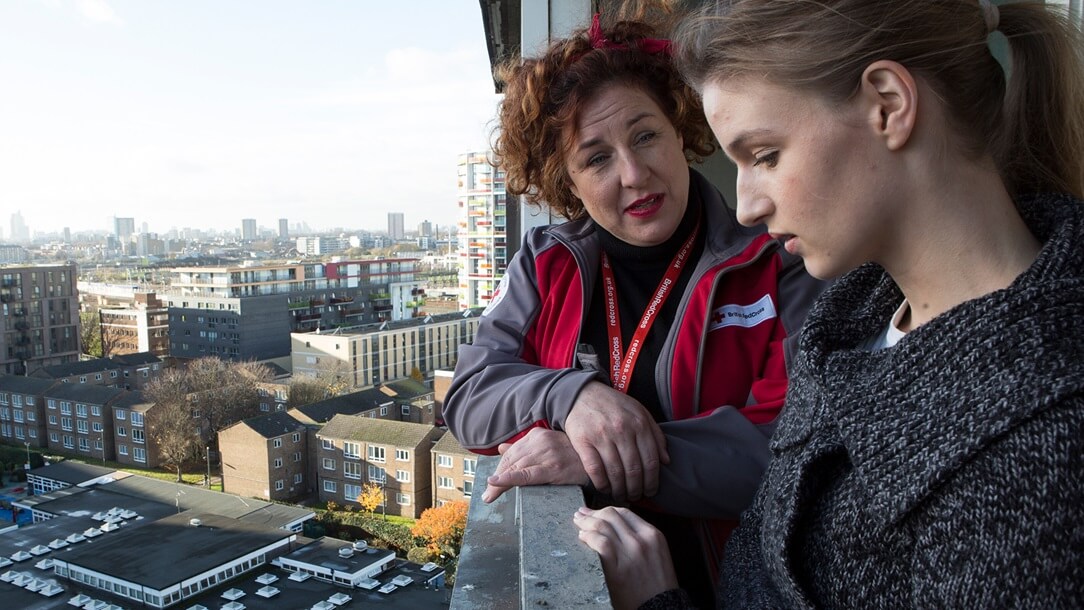Offering sustainable support to survivors of trafficking
Trafficking in persons is a serious crime and a grave violation of human rights which impacts both adults and children of every age. Human trafficking seriously threatens affected people’s integrity and wellbeing, and considerably increases their vulnerability. While it is the primary role of governments to assist and protect trafficked persons, civil society organisations are also key in caring for people who have been trafficked.Trafficking in persons is a serious crime and a grave violation of human rights which impacts both adults and children of every age. Human trafficking seriously threatens affected people’s integrity and wellbeing, and considerably increases their vulnerability. While it is the primary role of governments to assist and protect trafficked persons, civil society organisations are also key in caring for people who have been trafficked.
The “Sustainable integration of Trafficked human beings through proactive identification and Enhanced Protection (STEP)” was a 2-year project designed in context of the increased number of migrants arriving in Europe during 2015-2016. Concluded in February 2019, the project was led by the British Red Cross in partnership with the Croatian Red Cross, the Netherlands Red Cross, France Terre d’Asile, Hestia and Ashiana. STEP brought together colleagues from transit and destination countries to develop and promote a consistent approach to the identification, protection and integration of survivors of trafficking across the EU.

Research has shown that trafficking and exploitation are major causes of concern for migrants and refugees travelling along migratory routes. Yet the number of victims identified remains extremely low. To help address this problem, the Croatian Red Cross and France Terre d’Asile produced a guide for field workers to use in both transit and destination contexts. It provides practical advice for frontline officers and a list of indicators to help them detect potential and actual cases of human trafficking.
In the Netherlands, STEP partners developed the toolkit, “Discussing human trafficking and exploitation with (former) asylum seeker. It aims to increase awareness about the risks of trafficking among professionals who are active in reception centres, such as social workers or counsellors, as well as among asylum seekers themselves. Over 50 asylum seekers and survivors of human trafficking participated in the elaboration of the toolkit by explaining the type of advice that they would have liked to have received. “I thought the Netherlands was a very safe and fair country. I didn’t know exploitation was a risk when I came ”, explained one migrant during one of the focus groups.
In the UK, research was conducted on best practice models for longer-term support to promote the integration of victims of trafficking. Three complimentary models of support to the national system (National Referral Mechanism) were offered in three different locations across the country. STEP partners tested these different ways of facilitating survivors’ access to accommodation, legal advice, health care (including mental health services), volunteering opportunities, education and training. “The outcomes of the pilots show that survivors should continue to receive tailored, person-centred support for at least twelve months after they leave the national system to help them rebuild their lives”, says Rosie Watt, STEP project officer. “This is particularly valid for women”, she adds. “Long-term support helps to reduce women’s specific vulnerability to gender-related violence, abuse, exploitation and disempowerment”.
Agnesa’s story
Agnesa was a survivor of sexual exploitation and thus extremely wary of men. She had also recently fallen pregnant but was estranged from the baby’s father. Following sustained assistance from the STEP programme that was sensitive to her individual needs and wishes, she slowly began the process of re-establishing trusting relationships with the men in her life, including the baby’s father. Adapted support from an all-female team of professionals and volunteers helped to build her confidence and sense of agency. Agnesa now feels safer and more comfortable in her everyday interactions with men. “When Agnesa first came to STEP, the idea of a male manager in a job would have terrified her – and now she’s taking it in her stride,” shares a member of the STEP team.
Basic information
Activity name
Sustainable integration of Trafficked human beings through proactive identification and Enhanced Protection (STEP)
Country
United Kingdom, Netherlands, Croatia
Duration
2017-2019
Partners
British Red Cross, Croatian Red Cross, Netherlands Red Cross, France Terre d’Asile, Hestia and Ashiana
Resources
Hope for the future: Support for survivors of trafficking after the National Referral Mechanism
All tools developed in the framework of the STEP project can be accessed at the Project’s Trafficking Response platform.
This project funded by the European Union Asylum Migration and Integration Fund (AMIF) was implemented between 2017 and 2019.

